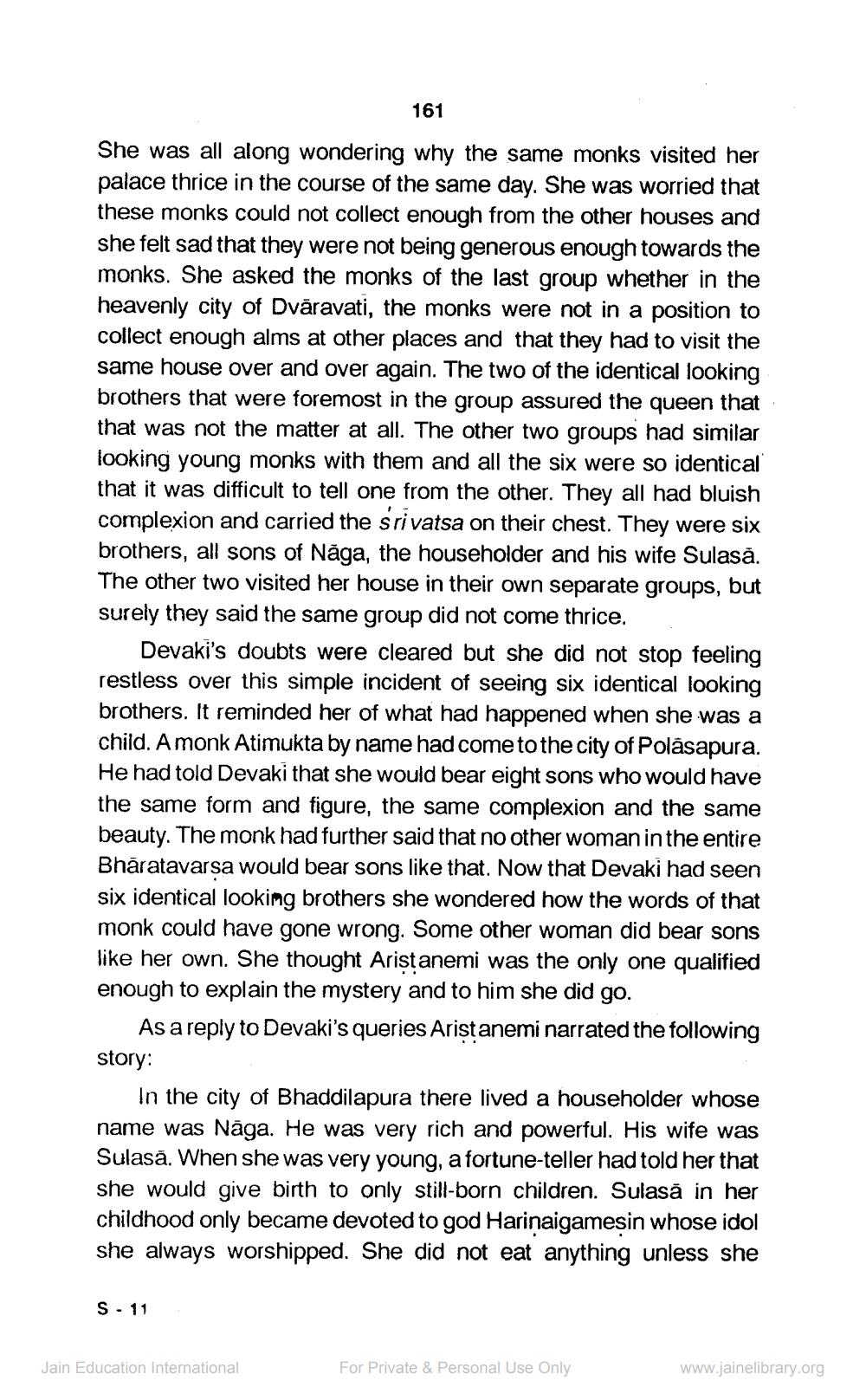________________
161
She was all along wondering why the same monks visited her palace thrice in the course of the same day. She was worried that these monks could not collect enough from the other houses and she felt sad that they were not being generous enough towards the monks. She asked the monks of the last group whether in the heavenly city of Dvāravati, the monks were not in a position to collect enough alms at other places and that they had to visit the same house over and over again. The two of the identical looking brothers that were foremost in the group assured the queen that that was not the matter at all. The other two groups had similar looking young monks with them and all the six were so identical that it was difficult to tell one from the other. They all had bluish complexion and carried the srivatsa on their chest. They were six brothers, all sons of Nāga, the householder and his wife Sulasă. The other two visited her house in their own separate groups, but surely they said the same group did not come thrice.
Devaki's doubts were cleared but she did not stop feeling restless over this simple incident of seeing six identical looking brothers. It reminded her of what had happened when she was a child. A monk Atimukta by name had come to the city of Polásapura. He had told Devaki that she would bear eight sons who would have the same form and figure, the same complexion and the same beauty. The monk had further said that no other woman in the entire Bhāratavarsa would bear sons like that. Now that Devaki had seen six identical looking brothers she wondered how the words of that monk could have gone wrong. Some other woman did bear sons like her own. She thought Aristanemi was the only one qualified enough to explain the mystery and to him she did go.
As a reply to Devaki's queries Aristanemi narrated the following story:
In the city of Bhaddilapura there lived a householder whose name was Nāga. He was very rich and powerful. His wife was Sulasä. When she was very young, a fortune-teller had told her that she would give birth to only still-born children. Sulasă in her childhood only became devoted to god Harinaigamesin whose idol she always worshipped. She did not eat anything unless she
S - 11
Jain Education International
For Private & Personal Use Only
www.jainelibrary.org




